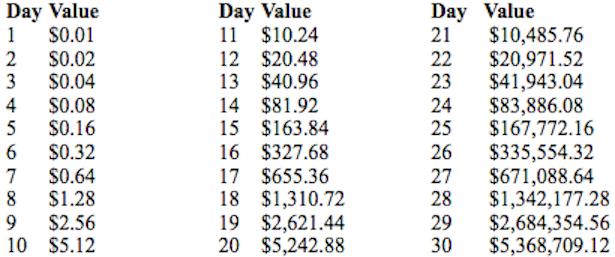Don’t feed the carrots, and don’t wave the sticks.
The Translation Bureau is a subordinate translation team, focusing on science and technology, business, workplace, life and other fields, focusing on introducing new foreign technologies, new perspectives, and new trends.
Editor’s note: Success is just a few simple exercises repeated every day, and failure is just a few judgment errors repeated every day. Accumulated training and judgment determine our success or failure. In the article, the author provides corresponding mental models from five perspectives: algorithm, compound interest, incentive, nudge, and convergence, aiming to help us simplify decision-making and make the right choice effortlessly. The author of this article is Patrik Edblad, the original title is 5 Mental Models to Help You Make Good Daily Choices.
Image source: bruce mars on Unsplash
Every day, we are faced with a series of choices. The choices we make together determine the trajectory of our lives. As the great late Jim Rohn said:
Success is just a few simple exercises repeated every day, and failure is just a few judgment errors repeated every day. Accumulated training and judgment determine our success or failure.
If you insist on making the right choices, you will make significant progress towards your goals. But if you often do something wrong, the goal will appear out of reach.
Therefore, in this article, I will share the most practical mental model that will allow you to make the right choice every day effortlessly.
1. Use algorithms to predict future results
Algorithm refers to a process or set of rules (especially a computer) that needs to be followed in calculations or other problem-solving operations.
How does Tesla realize autonomous driving? The answer is algorithms, millions of algorithms, and even more relevant are algorithms that happen daily. For example, every time you bake a cake, the recipe used is an algorithm.
Psychologists have discovered that algorithms can be used to program to make better choices. Peter Gollw, Professor of PsychologyItzer calls this strategy the “if-then” formula. All you have to do is fill in this simple formula:
If (situation)-then I will (behavior)
The beauty of the “if-then” formula is that it forces you to translate vague intentions into precise algorithms. For example, “I want to eat healthier” can become “If I buy lunch, then I will order a salad.”
It sounds ridiculously simple, but it is very effective. More than 200 scientific studies have shown that people who adopt the “if-then” plan are about twice as likely to achieve their goals. Psychologist Heidi Grant believes that it is so effective because:
Emergency events are part of the nervous system. Humans are very good at using the term “If X, then Y” to encode information and use these connections (often unconsciously) to guide behavior.
In other words: Just like a computer, the brain is very sensitive to algorithms. Therefore, no matter what you want to achieve, you must consciously construct a process that leads to results.
You can think of yourself as a robot, and the “if-then” formula is an algorithm used to program yourself. This may seem silly, but it is a way to achieve your goals.
2. Use the power of compound interest
Imagine that you are given a choice now-either get 3 million US dollars in cash immediately; or get 1 cent, but this 1 cent doubles in value every day for the next 30 days. Which one would you choose?
Most people will accept $3 million. Suppose you choose the first one, and I choose the second one.
In the beginning, you have good reasons to be satisfied with your choice. After a week of compound interest calculations, my money was only worth 64 cents. Two weeks later, I have $81.92. Three weeks later, I am still far behind you. Of course, this 1 cent has become 10485.76 US dollars, which has indeed increased a lot, but it is still not much compared to your 3 million US dollars.
However, in the third week, the time to witness the miracle has arrived. On the 28th day, 1 cent has reached an astonishing $1,342,177.28. On the 29th day, I got $2,684,354.56. On the 30th day, I actually got $536,8709.12!

Men usually don’t seem to pay much attention to where they are aiming when urinating, which may cause a little confusion, but if they see the “target”, their attention and accuracy will be greatly improved.
After adding a fly pattern to the toilet, cleaning up the men’s toilet has become much easier. Economist Aad Kieboom proposed the idea of ”urinal flies.” He said that these simple patterns can reduce fecal spills by 80%.
This is an amazing result and a great example of the power of “nudge”: small, simple, low-cost changes to the environment increase the possibility of people making specific choices or acting in specific ways.
The beauty of “Nudge” is that it allows you to make smarter decisions and take better actions without thinking. You just shape the environment, and then let the environment guide you to make decisions naturally. Here are some examples of how you can use this strategy in your life:
-
If you want to start flossing your teeth, put the pre-made floss in the cup next to the toothbrush.
-
If you want to practice guitar more often, put your guitar stand next to your living room sofa.
-
If you want to lose weight, put your large plates away and replace them with small plates.
A good choice does not necessarily require strong willpower. Many times, all you need is a light push in the right direction. So, look at the surrounding environment and ask yourself: “How can I make good choices easy and bad choices difficult?”
5. Clever use of peer pressure
Suppose you are a student with poor grades. How should you improve your academic performance? The direct way is to study harder. But research shows that a more effective way is to choose a smart roommate.
A study by economist Bruce Sacerdote of Dartmouth College students shows how powerful this influence is. He found that when students with low grade points start living with students with good grades, their grade point average increases.
The behavior is highly contagious. We continue to infect each other with our attitudes, feelings and actions. The school is just one example of this happening. Other interesting research shows:
-
If your neighbor buys a new car, you are also more likely to buy a new car.
-
If your colleagues are often late, you will be more likely to be late.
-
If you are a woman and your colleague has recently given birth to a child, you are more likely to become pregnant.
-
If your friend, sibling or colleague divorces, you are also more likely to divorce.
-
If you have a friend who gets fat, your risk of getting fat also increases by 57%-even if your friend lives hundreds of miles away!
I can cite many examples, but I believe you understand: The people around you deeply influence who you become. If you spend enough time with a group of people, the way they do things will affect the way you do things.
So, whenever you start to change your life, make sure to use peer pressure wisely. With the people you want to be, your behavior will naturally approach them.
Write at the end
-
Algorithm: Use the “if-then” plan to program yourself to make good choices automatically.
-
Compound interest: Make small but continuous progress and you will get huge results.
-
Incentive: You have to use carrots and sticks carefully.
-
Nudge: The design environment makes good choices easy and bad choices difficult.
-
Convergence: The people around you are your role models, and you will naturally become like them.
Translator: Hi Tang
